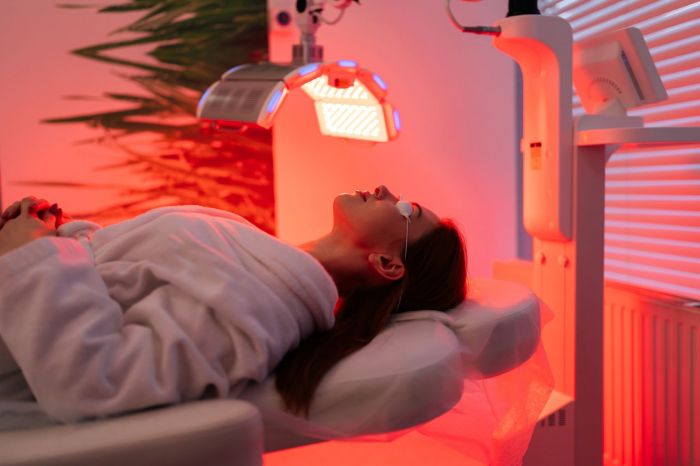
Brain health is essential for clear thinking, emotional well-being, and quality of life, yet many face challenges in this area. Conditions like Alzheimer’s and Parkinson’s affect 1 in 6 people, while mental health issues, including anxiety and depression, impact nearly 1 in 8, with depression alone affecting over 280 million globally. Emerging treatments, such as red light therapy, show potential in supporting brain function, alongside healthy lifestyle choices like proper nutrition, exercise, and stress management, to enhance overall well-being.
Getting Close To Nature
Research demonstrates that spending time close to nature can significantly boost brain health and enhance mental well-being. A 2019 study in Scientific Reports revealed that individuals who spent at least 120 minutes per week in natural environments reported improved health outcomes and reduced anxiety levels (White, M.P. et al., 2019). Furthermore, a study in Proceedings of the National Academy of Sciences found that nature exposure led to decreased rumination and better mood (Bratman, G.N. et al., 2015).
Getting More From Your Sleep
Studies highlight the critical role of sleep in enhancing brain health and cognitive function. A study published in Sleep Health found that individuals who maintained a regular sleep schedule of 7-9 hours experienced reduced symptoms of depression and anxiety (Freeman, D. et al., 2017). Additionally, research in Nature Reviews Neuroscience emphasized that adequate sleep is essential for memory consolidation and overall cognitive performance, indicating that prioritizing sleep can lead to significant improvements in brain health (Diekelmann, S. & Born, J., 2010).
Staying Physically Active
Surveys consistently demonstrate that physical activity is vital for enhancing brain health. A large-scale study in The Lancet Psychiatry found that individuals who engaged in regular exercise reported fewer days of poor mental health (Chekroud, S.R. et al., 2018). Furthermore, a review in Frontiers in Aging Neuroscience highlighted that exercise improves cognitive function and may reduce the risk of neurodegenerative diseases, underscoring the importance of staying physically active for brain health (Northey, J.M. et al., 2018).
Red Light Therapy
Analysis indicates that red light therapy (RLT) can significantly enhance brain health by promoting cellular energy and reducing inflammation. A study published in Photobiomodulation, Photomedicine, and Laser Surgery in 2019 found cognitive improvements in dementia patients after RLT treatment (Barrett, D.W. et al., 2019). Another study in Behavioral and Brain Functions revealed that RLT effectively reduced depressive symptoms and improved emotional regulation (Zhang, J. et al., 2020), highlighting its potential as a therapeutic intervention for brain health.
Developing the Sense of Meaning and Purpose in Life
A longitudinal study examines how purpose in life can predict longevity and mental health. The research suggests that individuals with a strong sense of purpose tend to have healthier brain functions and lower levels of stress, both of which contribute to a reduced risk of age-related cognitive decline. Additionally, a study published in Psychological Science linked a sense of purpose to improved cognitive function and reduced risk of neurodegenerative diseases (Hill, P.L. & Turiano, N.A., 2014).
Learn to Understand and Manage Your Feelings
A study by Keng, S.L., et al. (2011) emphasized that mindfulness practice enhances emotional awareness, leading to better emotion regulation and overall cognitive flexibility. Moreover, an article from the Harvard Brain Science Initiative explores the connection between emotional awareness and mental health, highlighting how identifying and understanding emotions can help individuals cope with stress and improve their overall well-being.
Practicing Gratitude
A study published in the Journal of Personality and Social Psychology found that individuals who practiced gratitude reported higher levels of well-being and lower levels of depression. Another study published in the journal Emotion found that practicing gratitude can increase activity in brain regions associated with positive emotions and social connection
Conclusion
In summary, taking care of your brain is important for feeling good and enjoying life. Simple actions like using red light therapy, spending time outdoors, getting enough sleep, staying active, and finding purpose can really help boost your thinking and mental strength. Also, learning to manage your emotions and practicing gratitude can improve your mental health. By adding these habits to your daily routine, you can support your brain health.









